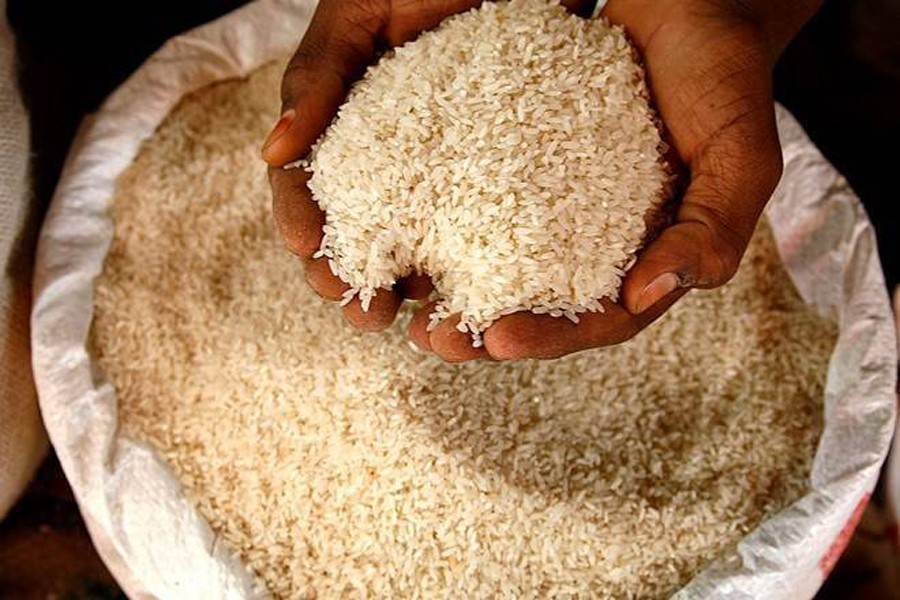Tags
Irrational rice price hike and govt’s role

True to their unholy alliance for market manipulation, the business syndicate of the staple has managed to maintain a soaring artificial price line for long. This is best exemplified by the fact that at a time when the average rice price in international market is 24.6 per cent lower than that of a year ago, the comparable domestic price of this main staple is 15-20 per cent higher. The FAO All Rice Price Index (FARPI) estimates that rice price fell by 1.7 per cent last month to an average of 104.1 points. While the price fall of rice in international market is lowest in three years, the domestic price defies the trend to record price increases unabatedly. With the medium, fine and aromatic varieties registering yet another hike ranging from Tk 2.0-4.0 and Tk 10-15 a kilogram for the first two varieties and the latter type respectively just before the Eid-ul-Fitr, there emerges the pattern of unethical tactics resorted to by millers and big rice traders for fleecing the consumers.
Trading syndicates in Bangladesh target festivals, natural calamities that cause loss to crops and opportunities or even no opportunities at all to advance their aggressive profit mongering. The pre-Eid undesirable price hike was geared to cash in on the consumers’ psychology of preference for finer rice varieties during the Ramadan and aromatic rice on the occasion of Eid-ul-Fitr. Thus the business syndicates make undue profit to the tune of billions of taka each time they target a sought-after commodity/commodities on a particular occasion. This is a vicious ploy they have been resorting to with impunity. The business syndicate of rice knows it very well how to control the market and depending on the indispensability of the staple, they are taking both the people and the government for a ride. Strangely, no administration—military or civilian—has ever tried to take the bull by the horn.
The flash floods of last year’s July-August that caused considerable damage to both standing paddy and cultivation of new crop have been used as a ploy by the syndicate to spike rice prices. Even the import of rice by both the government and private companies at prices much lower than the domestic price lines could not leave any positive impact on the volatile rice market. It is because private importers imported their quotas at their own pace not to glut the market and the government too has not shown enough promptness to import cereal to have its reflection on staple prices. It is more concerned about building a buffer stock rather than intervening in the market.
Meanwhile, millers and stockists were smarter than the rice procurement teams to collect and build a stock of paddy and rice. They are now in a strong position to use the food as a weapon before which this soft-pedalling interim government is proving helpless. The July-August time of floods is also the time when student-led movement made miracle happen and put the interim government in charge. If the government’s overwhelming concern is to bring about a whole range of reform to governance, it has failed to act innovatively and decisively to dismantle or streamline the bumbling bureaucracy and the business syndicates known as cohorts of the deposed regime and are the main sources of this country’s social injustice and economic ills. It is time these two malfunctioning behemoths are strictly dealt with instead of pampering them.
https://thefinancialexpress.com.bd/editorial/hope-rekindled-for-rohigya-repatriation
Published Date: April 7, 2025







